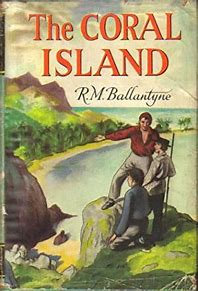 Lockdown seems to have got me thinking of times past.
Lockdown seems to have got me thinking of times past.
Older British readers of this blog will remember the days of the traditional prizegiving. These events were, and sometimes still are, a marker of the end of the school year or perhaps the last day of Sunday school before the summer holidays or Christmas. In their 21st century form, they have become known as awards ceremonies (in schools at least) and awards, if they are given at all, are generally given on a much more thoughtful and considered basis than they were fifty or sixty years ago.
In the traditional prizegivings of my youth I was the recipient of a few awards – usually in the form of books. Some of these still feature on my bookshelves today. Lest you think I am being boastful here, or drawing attention to my early flowering genius, I should point out that it was possible to obtain a prize simply for turning up most Sundays, in the case of Sunday school, and most days of the school year in the case of primary school. In retrospect I realise that there was always a hard core of youngsters – probably even the majority – who received no prizes at all at those events. There was also a hard core who received a disproportionately large number of prizes. In some years I was one of the group that received no prize – nul points – and it hurt, but such was the system at the time. Like most other children I accepted this as part of the rhythm of the year, part of life which was commanded and controlled by adults.
 For younger children, the books given as prizes were often sub-divided into the categories of “suitable for girls” or “suitable for boys” and distributed accordingly. One Sunday school prize I received and treasured for years was the novel The Coral Island by R M Ballantyne, a Scottish author who travelled the world. You probably know the book well. Written in 1857, it tells the story of three young English sailors – Jack, Ralph and Peterkin – who are stranded on a remote island in the Pacific. As a child, I read and re-read that book as an adventure story, to the point where I could visualise clearly every incident in it – the shipwreck, the flora and fauna of the island, the unexpected arrival of pirates, the capture of Ralph, his encounter with “savages”, and so on until their eventual escape from the island. At one point I could have quoted sections of that book to you verbatim. As a child I read it simply as a tale of derring-do, and in that sense it left a strong impression.
For younger children, the books given as prizes were often sub-divided into the categories of “suitable for girls” or “suitable for boys” and distributed accordingly. One Sunday school prize I received and treasured for years was the novel The Coral Island by R M Ballantyne, a Scottish author who travelled the world. You probably know the book well. Written in 1857, it tells the story of three young English sailors – Jack, Ralph and Peterkin – who are stranded on a remote island in the Pacific. As a child, I read and re-read that book as an adventure story, to the point where I could visualise clearly every incident in it – the shipwreck, the flora and fauna of the island, the unexpected arrival of pirates, the capture of Ralph, his encounter with “savages”, and so on until their eventual escape from the island. At one point I could have quoted sections of that book to you verbatim. As a child I read it simply as a tale of derring-do, and in that sense it left a strong impression.
Looking at that book again as an adult, I am surprised – and somewhat depressed – by the fact that the language used in the novel is at a far more sophisticated level than anything I have seen children of the same age tackling today. That is an aside, however. As an adult, I can also see that the all-male story reflected strongly the imperial values of the nineteenth century – the desire to spread Christianity and civilise the “savage”; a view of the world that implied British superiority over other races; a very precise moral code where the pirates who led “evil” lives were given their just rewards; and above all the ability of three clean-living young British men to survive more or less happily together on a tropical island and to provide mutual support to one another over a long time, with much of the knowledge and wisdom emanating from Jack, the oldest.
In his 1954 novel Lord of the Flies, William Golding borrowed the tropical castaway scenario to paint a much bleaker picture of how a group of young boys might behave in the same circumstances. To underline the contrast he even borrows the same name for key characters in his novel – Jack, Ralph and Simon, with the otherworldly Simon forcibly reminding us of the biblical Simon Peter (Peterkin). If you have read the book or seen the film you will know that things do not turn out too well for that group of lads.
The two novels were written a century apart. Implied innate goodness and moral certainty in the nineteenth century is replaced by implied innate evil and moral equivocation in the twentieth. In the 2050s will another novelist try his or her hand at constructing a similar castaway fable for the twenty-first century?
With the current spate of statue toppling and guilt about slavery, I leave you to mull over your own thoughts about how that future novel might look. In today’s climate, where a very different kind of moral certainty seems to rule, is The Coral Island in danger of being forcibly removed from my bookshelf? Should I even feel guilt about keeping it there?
As I say, lockdown gets you thinking about the past, but also about our present times and the future.
